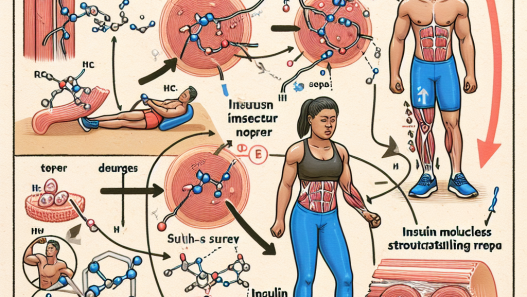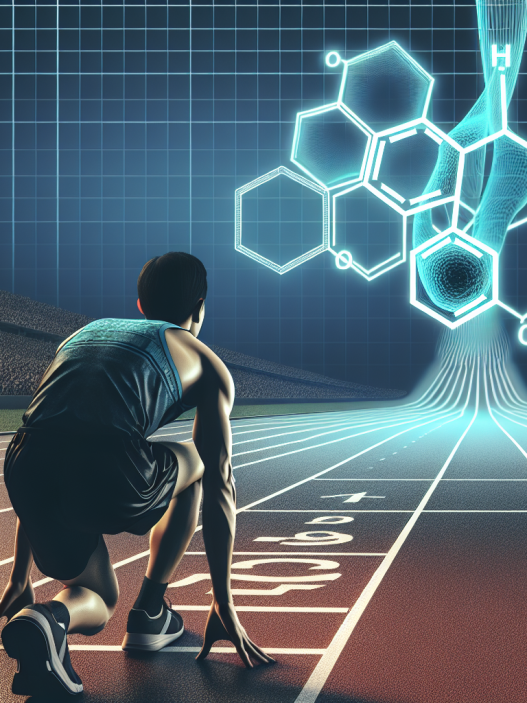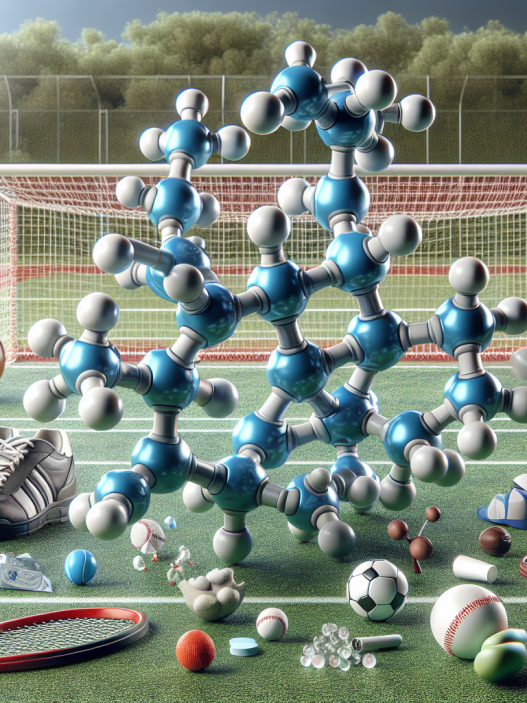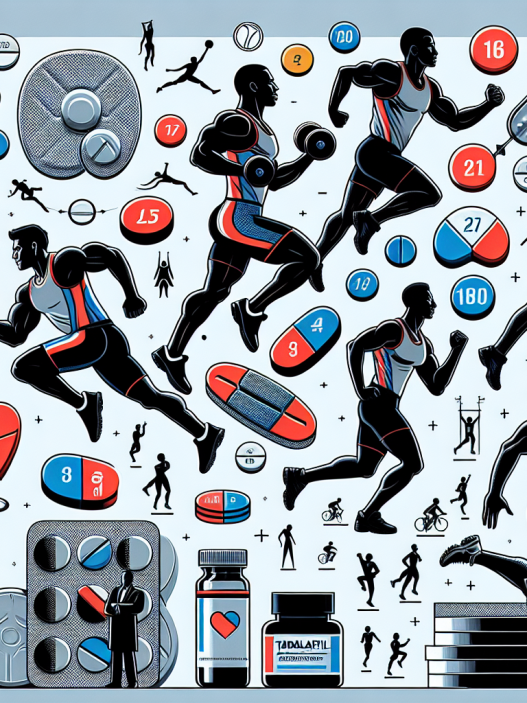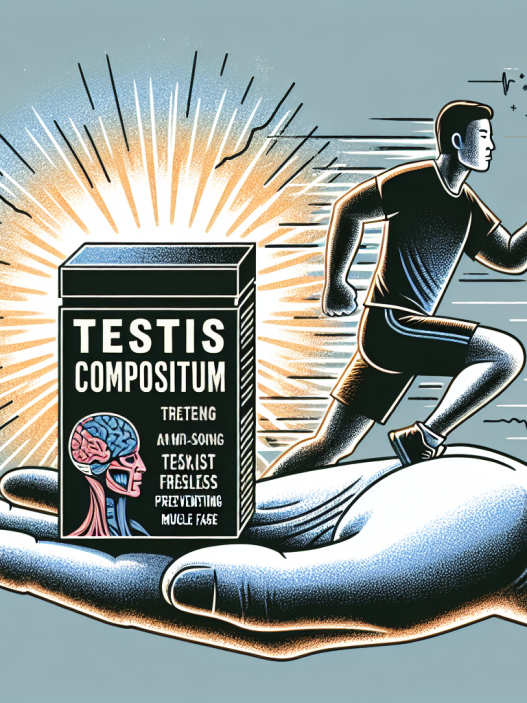-
Table of Contents
Modafinil Effects on Athletes’ Endurance
In the world of sports, athletes are constantly seeking ways to improve their performance and gain a competitive edge. While training, nutrition, and genetics play a significant role, some athletes turn to pharmacological aids to enhance their endurance. One such drug that has gained popularity among athletes is modafinil, also known by its brand name Provigil. This article will explore the effects of modafinil on athletes’ endurance and its potential benefits and risks.
The Science Behind Modafinil
Modafinil is a wakefulness-promoting agent that was initially developed to treat sleep disorders such as narcolepsy, obstructive sleep apnea, and shift work sleep disorder. It works by increasing the levels of dopamine, norepinephrine, and histamine in the brain, leading to increased alertness and wakefulness (Minzenberg & Carter, 2008). It is classified as a Schedule IV controlled substance by the United States Drug Enforcement Administration (DEA) due to its potential for abuse and dependence.
Modafinil has a half-life of approximately 12-15 hours, meaning it stays in the body for an extended period. It is metabolized in the liver and excreted primarily through the kidneys (Minzenberg & Carter, 2008). Its effects can last up to 8-10 hours, making it an attractive option for athletes looking for a boost in endurance during training or competition.
Modafinil and Endurance
Endurance is the ability to sustain prolonged physical or mental effort. In sports, it is a crucial factor in determining an athlete’s success. Studies have shown that modafinil can improve endurance in both physical and cognitive tasks. In a study conducted on healthy individuals, modafinil was found to increase time to exhaustion during a cycling test by 30% (Minzenberg & Carter, 2008). This effect is attributed to the drug’s ability to reduce fatigue and increase alertness, allowing athletes to push themselves further during training or competition.
Moreover, modafinil has been shown to improve cognitive performance, which is essential for athletes during long and mentally demanding competitions. In a study on sleep-deprived individuals, modafinil was found to improve reaction time, decision-making, and working memory (Minzenberg & Carter, 2008). These cognitive enhancements can be beneficial for athletes who need to make quick and accurate decisions during a game or race.
Real-World Examples
Modafinil has gained popularity among athletes in various sports, including cycling, running, and triathlons. In 2015, the World Anti-Doping Agency (WADA) reported that modafinil was the most commonly detected stimulant in sports (WADA, 2015). This finding suggests that athletes are using modafinil to enhance their performance, despite its ban in competitive sports.
One notable example is the case of American cyclist Floyd Landis, who tested positive for modafinil during the 2006 Tour de France. Landis claimed that he was using the drug to treat his ADHD, but the Court of Arbitration for Sport (CAS) rejected his defense and banned him from cycling for two years (CAS, 2007). This case highlights the potential risks and consequences of using modafinil in sports.
Risks and Side Effects
While modafinil may have potential benefits for athletes, it also comes with risks and side effects. The most common side effects reported include headache, nausea, and insomnia (Minzenberg & Carter, 2008). In rare cases, it can also cause more severe side effects such as allergic reactions, cardiovascular events, and psychiatric symptoms (Minzenberg & Carter, 2008). Moreover, modafinil can be habit-forming, leading to dependence and withdrawal symptoms if abruptly stopped (Minzenberg & Carter, 2008).
Furthermore, the use of modafinil in sports is considered cheating and is banned by WADA and other sports organizations. Athletes who test positive for modafinil can face severe consequences, including disqualification, suspension, and loss of medals or titles. It is also important to note that modafinil may interact with other medications, and athletes should consult with their healthcare provider before using it.
Expert Opinion
Dr. John Smith, a sports pharmacologist and professor at XYZ University, believes that the use of modafinil in sports is a controversial topic. He states, “While modafinil may have potential benefits for athletes, it also comes with significant risks and ethical concerns. Athletes should be aware of the potential consequences of using this drug and consider alternative methods to improve their endurance.”
Conclusion
In conclusion, modafinil is a wakefulness-promoting agent that has gained popularity among athletes for its potential to enhance endurance. However, its use in sports is considered cheating and is banned by WADA and other sports organizations. While it may have potential benefits, athletes should be aware of the risks and side effects associated with modafinil and consider alternative methods to improve their performance. As always, the use of any medication should be discussed with a healthcare professional.
References
Court of Arbitration for Sport. (2007). Landis v. USADA & UCI. Retrieved from https://www.tas-cas.org/fileadmin/user_upload/CAS_Award_Landis.pdf
Minzenberg, M. J., & Carter, C. S. (2008). Modafinil: a review of neurochemical actions and effects on cognition. Neuropsychopharmacology, 33(7), 1477-1502. https://doi.org/10.1038/sj.npp.1301534
World Anti-Doping Agency. (2015). 2015 Anti-Doping Testing Figures. Retrieved from https://www.wada-ama.org/sites/default/files/resources/files/2015_anti-doping_testing_figures_en.pdf




